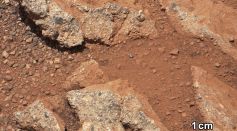Tags: Cosmic Radiation

Cosmic Radiation on Martian Surface Revealed in Experimental Data: Will This Affect the Search for Traces of Life on Mars?
Spatial Learning Impairment Observed from Deep Space Radiation-Exposed Mice, Affects Male Subjects Than Female
Space Pups from Freeze-Dried Mouse Sperm Stored in ISS for 6 Years Are Large, Healthy
Apple May Bring New iMac With Xenon Processor To Provide The Best Data Protection From Cosmic Rays
Man's Next Endeavor In Space-Keeping Mankind Alive on Mars
NASA Giving Away $29K To Someone Who Can Figure Out How To Protect Astronauts
Signed Up to Go to Mars? Better Think Again, While You Have the Chance
Cosmic Radiation Reveals Devastating Affects on the Brain—What Plans Will This Change for NASA?
Future Mars Missions Threatened by Cosmic Radiation
Most Popular

Memory and Learning: How the Brain Stores, Retrieves, and Forgets Information

Gut Microbiome 101: How Gut Bacteria Influence Immunity, Mood, and Metabolism

The Strongest Tornadoes Ever Recorded: Scientific Breakdown of Extreme Tornado Events

How Solar Activity Shapes Our Planet: What the Next Solar Maximum Means for Earth





